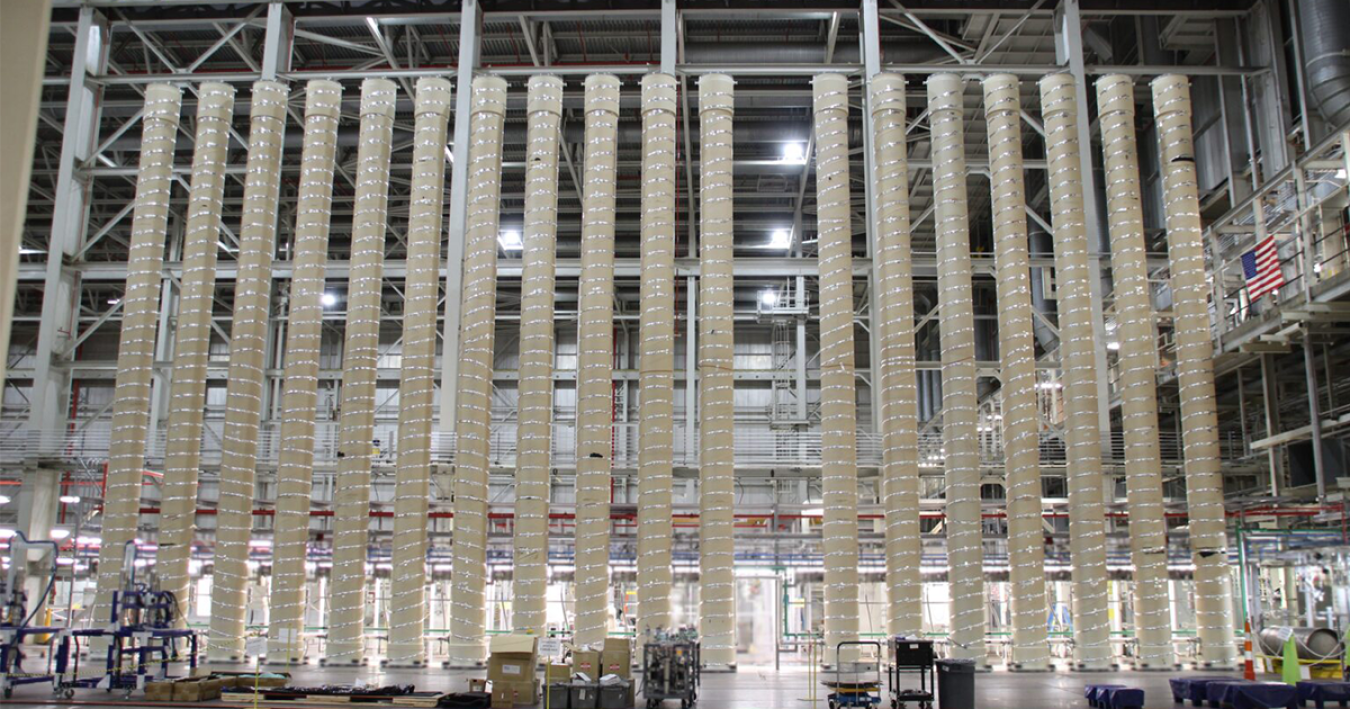Centrus Energy Corp has produced the nation’s first 20 kilograms of high-assay low-enriched uranium (HALEU) — a crucial material required by many advanced reactor technologies.
November 7, 2023

Centrus Energy Corp has produced the nation’s first 20 kilograms of high-assay low-enriched uranium (HALEU) — a crucial material required by many advanced reactor technologies.
The production is the first of its kind in the U.S. in more than 70 years and meets a key milestone in the U.S. Department of Energy’s HALEU Demonstration project to stand up and operate 16 advanced centrifuges at an enrichment facility in Piketon, Ohio.
Ramping Up Domestic HALEU Production
The Department awarded American Centrifuge Operating, a subsidiary of Centrus, a contract in November 2022 to start up and operate an enrichment cascade before the end of the year.
Centrus started enriching limited quantities of uranium hexafluoride gas into HALEU earlier this month and met this year’s production goal of 20 kilograms nearly two months ahead of schedule.
The Piketon plant is currently the only facility in the U.S. licensed to enrich uranium up to 19.75 percent and is the first domestic plant to start enrichment production since the 1950s.
“This critical milestone is essential to meeting the Department’s near-term HALEU needs, while laying the groundwork for the full restoration of America’s lost domestic uranium enrichment capacity,” said Centrus President and CEO Daniel B. Poneman. “We are committed to working with the Department and industry to build a public-private partnership so that we can scale up production in the coming years to meet the full range of commercial and national security requirements for enriched uranium.”
“Meeting this first production mark is very exciting for everyone involved in the Piketon demonstration project,” said Jon Carmack, DOE’s Deputy Assistant Secretary for Nuclear Fuel Cycle and Supply Chain. “Centrus reached this accomplishment ahead of schedule and has proven the domestic capability to produce HALEU for the next generation of nuclear reactors.”
Centrus is expected to boost its annual production of HALEU material to 900 kilograms in 2024 under the contract, with options to produce more in the future.
The HALEU will be used to help fuel the initial cores of two demonstration reactors awarded under DOE’s Advanced Reactor Demonstration Program and support fuel qualification and the testing of new reactor designs.
The Growing Need for HALEU
Many advanced reactor designs will use HALEU to achieve smaller designs, longer operating cycles, and increased efficiencies over current technologies. This includes nine of the 10 advanced reactor designs being supported by DOE through the Advanced Reactor Demonstration Program that will require HALEU.
There is no commercial source of HALEU outside of Russia currently available to fuel these reactors, and gaps in the nation’s fuel cycle infrastructure could delay the deployment of advanced reactors in a timeframe that supports the nation’s target to reach a net-zero emissions economy by 2050.
In addition to this demonstration project, DOE is supporting several efforts to provide more access to HALEU. Current activities include recycling spent nuclear fuel from government-owned research reactors and acquiring HALEU through purchase agreements with domestic industry partners to spur demand for additional HALEU production and private investment in the nation’s nuclear fuel supply infrastructure.

